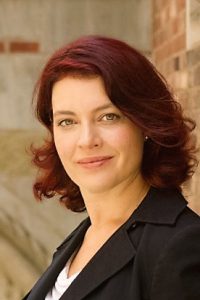
University of Richmond Law School
I went to law school to be a strategic civil rights litigator, and I didn’t realize I was interested in academia until after I left. Although I enjoyed my clerkships, I missed teaching and learning, I missed academic discussions, and, critically, I missed writing. As a law student, I had the pleasure of working on a student note and number of co-authored articles with a wonderful mentor and other students, and I found myself constantly thinking of new potential problems and pieces. Happily, I was able to do a bit of an about-face and return to Yale two years after leaving as a member of the inaugural class of Ph.D.s in law.
Yale’s Ph.D. program was perfect for someone who, like me, hadn’t spent law school prepping for a career in the academy. While many VAPs and fellowships create a space to build on an extant knowledge base and acquire teaching experience, the three-year Ph.D. gave me the freedom to explore and develop expertise in new areas, teach related content, and write three articles (the preferable number for going on the market—with the caveat that quality always trumps quantity). Additionally, I had an amazing cohort of Ph.D. candidates, many of whom I count among the most impressive scholars I know today. A few of us created “The Accountables,” a group who held each other to our writing vows and gave feedback on everything from abstract drafts to the maddening submission cycle questions to personal life concerns.
I went on the market in the fall of 2015 feeling fairly confident. I had placed my job talk paper with the University of Pennsylvania Law Review, I had two other single-authored articles published with the Cardozo Law Review and the Yale Journal of International Law, three co-written articles, and five shorter pieces. I had co-taught an international law and policy course, a law of war reading group, and was scheduled to co-teach a techlaw course. And I did well enough, considering that the market was still in one of its worst years: I had eight screening interviews and three callbacks—but, ultimately, no job offers.
Again, I was lucky: I was offered a job as the Executive Director of the Information Society Project (ISP), and three years later, I went on the market again with wildly different results. I had 45 screening interview requests, I scheduled 18 callbacks, and I received three excellent job offers by late November. While I had a number of school votes and a few callbacks still outstanding, I happily accepted a position with the University of Richmond in early December, 2018.
(Please note: You do not need umpteen screening interviews to get a job! I have plenty of friends who have gone through the market in the past few years with single-digit screening interviews who are now in tenure-track positions. I mention my differing numbers to highlight both what you can control in this process and the role of chance.)
What changed? Both times, I was genuinely excited about my paper, my research agenda, and had a practiced and fun job talk. Both times, I had supportive recommenders. Both times, I put together a “cheat sheet” for all interviews with notes about each person I was scheduled to meet. I’m sure it didn’t hurt that the second time I had two more single-authored articles, a few additional shorter pieces, and another semester of teaching on my CV. Some factors were outside of my control: the market had also picked up and there was a general increased interest in law and technology issues. Of the factors I could affect, I made four significant changes.
- First, I shifted my calendar. The first time I went on the market, I had written the first full draft of my job talk in August, a month or two before I sent it out to schools. That meant the hiring committees read a relatively rough cut of what eventually became a great paper. I assume that most didn’t bother reading the updated versions I sent months later. The second time around I presented a first draft of my job talk paper at an April conference, I revised it and sent it out to 20+ readers by May, and I spent June and July addressing their comments. By August, I had a far more polished draft. Similarly, I upped my targeting game: I sent my applications out and asked my recommenders to contact schools shortly after the FAR bulletin was published, about a month earlier than my first time around.
- Second, I rebranded myself. Instead of being a person who did international law, technology law, and torts, I went on the market as torts, techlaw, and international law. I hadn’t fundamentally changed who I was, but the rearrangement affected my marketability: 1L subjects are always going to be more in demand than specialty courses, and even schools who wanted me for my specializations valued my interest in torts. Relatedly, I was a far more credible torts person. The first time I went on the market, only my job talk paper mentioned tort law, and then only in the context of applying tort law principles in armed conflict. The second time, I had two articles applying tort law in international contexts and my job talk was firmly grounded in domestic tort law practice and theory. Not only had I demonstrated a persistent interest in the subject, I was also able to talk at length about how teaching torts would further my research agenda.
- Third, I cultivated and leaned on my networks. Between my Ph.D. years and tenure at ISP, I had the chance to meet and keep in touch with innumerable brilliant scholars writing in adjacent areas. The ISP also has an incredibly supportive community that I was able to tap. When it came time to go on the market, I was also able to reach out to people at 60+ schools for advice on how to approach the market, to learn more about what their school was hiring for, and to ask if they would pass along my CV to their hiring chair. Sometimes my contacts were the hiring chairs!
- Lastly, based on advice from my network, I prepped differently. For each of my screening interviews, I walked in with two or three points that would help distinguish me from other candidates. It might be why I was excited to teach 1Ls, or my thoughts on the import of having a techlaw course in the curriculum, or that I had family or other reason to be in the school’s geographic area. Additionally, immediately before a session, I took a moment to think about why I was genuinely excited about the interview, and then I did my best to share that feeling. The first time I went on the market, I thought I would be most impressive if I demonstrated my own academic knowledge; the second time, I understood that committees are hiring a colleague—interviews are a chance for them to evaluate whether you are someone they would enjoy working with, and showing honest interest in their work and the school helps demonstrate that you are.
As anyone who has been through it will tell you, the law teaching market is incredibly hard. It’s hard when you don’t have a lot of interviews; it’s also hard when you do. It’s time consuming and emotionally draining. You are constantly running up against factors you can’t control, like a hiring freeze at a dream school, or a particular subject area that’s hot or not a given year. One of the brightest silver linings to going on the market twice with such dramatically different results was the realization that the process was not an in-depth valuation of me or my scholarship, but rather a vast chaotic system where I could only affect a few factors: what I wrote on, how I presented myself, and my general attitude. Recognizing that allowed me to relax into being more myself, which ultimately was probably the best thing I could do.
